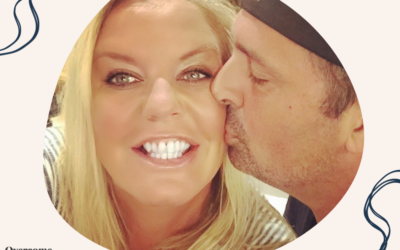Today, I’m continuing my series about the five biggest lessons I learned in the last five years. (Catch up by reading part 1, part 2, and part 3.)
I’ve been thinking about today’s topic for a while. Expectations.
I love the line by Gloria Gaither that says, “Live with expectancy, rather than with expectations.”
It captures what I’ve learned perfectly because expectations bring about disappointment and negative attitudes while expectancy gives us hope and joy.
Before our big move to Texas five years ago, I didn’t realize how much I lived with expectations. I expected a lot from God, others and myself…in that order. Expectations became a normal part of my day-to-day life.
I loved the life we had come to expect in Pennsylvania. We had the benefit of our family, friends, business associates, community and church all around us. We were living out our vision with the help of many people. It was fulfilling, exciting, and hard work and there were many days when we could barely keep up.
We had an incredible team of people around us that helped make our life less hectic. As the company grew and our responsibilities shifted, we needed to let go and let others step in to help manage the daily activities of our personal and professional lives. Their assistance was extremely valuable to us. Without those who worked with us, we would never have accomplished anything. Without knowing it, we came to expect this.
When you come to expect something of others or yourself and suddenly those expectations aren’t met, for whatever reason, it can cause disappointment.
I went into our move with certain expectations of how everything would play out but it didn’t go as I expected and I really struggled. I was disappointed, upset, and sad. Through the process, however, I realized that my expectations were completely unrealistic.
If I wanted to avoid a huge disappointment, I had to start letting go of expectations one by one and learn to live with expectancy. Don’t get me wrong, this wasn’t easy and I had no idea how to do it. I had to stumble through the process.
Here’s an example of how that looked for me.
Soon after we moved to Texas, I knew we needed to open a bank account. However, because of the business, our finances were always handled by someone else. I came to expect that. I hadn’t opened a bank account in years! Such a simple, normal, part of life!
As I got ready for the day, I told Jonas I was done crying from the grief of leaving and today I would be strong and get on with my life.
I drove to our local bank, met with a wonderful lady, and after she asked me, “So, what brings you to Texas?”, I ended up crying with my head on her desk.
It’s funny now, but at the moment, I was terribly embarrassed that I couldn’t control my emotions. I simply could not answer her question.
She gently put her hand over mine and said, “I understand. I made a move a few years ago that was very difficult for me. We’re here for you and we’ll help you in any way we can. Anytime you feel the need to cry, you may call me and we’ll do coffee together.” (Southern hospitality at it’s finest!)
After a few good laughs, we hugged and I left.
I had no expectations from anyone that day. The only thing I expected was for me to keep it all together while I opened our account. (Which I didn’t do well.)
What I received was something beyond my wildest expectations and taught me the value of expectancy. She became a business friend and I looked forward to going to the bank just to see her. We never met to cry together but there was a connection to her that helped me to adjust.
When you don’t have expectations, you create the possibility for surprises.
Expectancy is like a kid waiting with eagerness for Christmas morning. It gives us something to look forward to.
Expectations make us mad because someone or something has not met your expectations. As I reflect on this I realize that expecting from others can be a form of control. When you force your hidden expectations on others, it produces feelings of being controlled.
I do believe there are normal expectations that are necessary but it relies on mutual spoken expectations. As a team, or family, this can really bring people together.
Some examples would be:
- We teach our children good behavior and expect good results.
- As business owners, leaders, managers, and teachers in our organizations we expect performance from those we influence.
- If I loan someone money, I expect them to pay me back.
- In my marriage, I expect companionship.
As I learned to let go of old expectations, I developed two skills that help me manage my expectations.
1. Be still.
Give yourself time to dig deep and reflect on what you may unconsciously or consciously be expecting of others. When you identify those things and learn new and better information, consider lowering your expectations and shifting to a place of expectancy.
2. Manage your emotions.
This isn’t easy, but only YOU have that power. You get to decide what your expectations are and if they go unmet, only you can control your response. I found that power sitting in my chair, waiting, hoping, praying, thanking God and knowing all along He was WITH me to help me change from within.
Over the last five years, our expectations have become less and less. We learned how to live with expectancy.
We learned how to accept the suffering that comes from unmet expectations but we also learned that sorrow can lead to discipline.
As we embraced this discipline, peace and rest came.
As you practice these two very important skills, being still and managing your emotions, your heart will experience peace. You’ll no longer expect everyone else to meet your expectations. You’ll learn to live your life with expectancy and joy will be your reward.
This article first appeared in Anne’s Weekly newsletter! To subscribe, click here. Each week, Anne sends a short inspirational email straight to your inbox. As a subscriber, you’ll also have first access to new events, books, and more! Click to subscribe.




